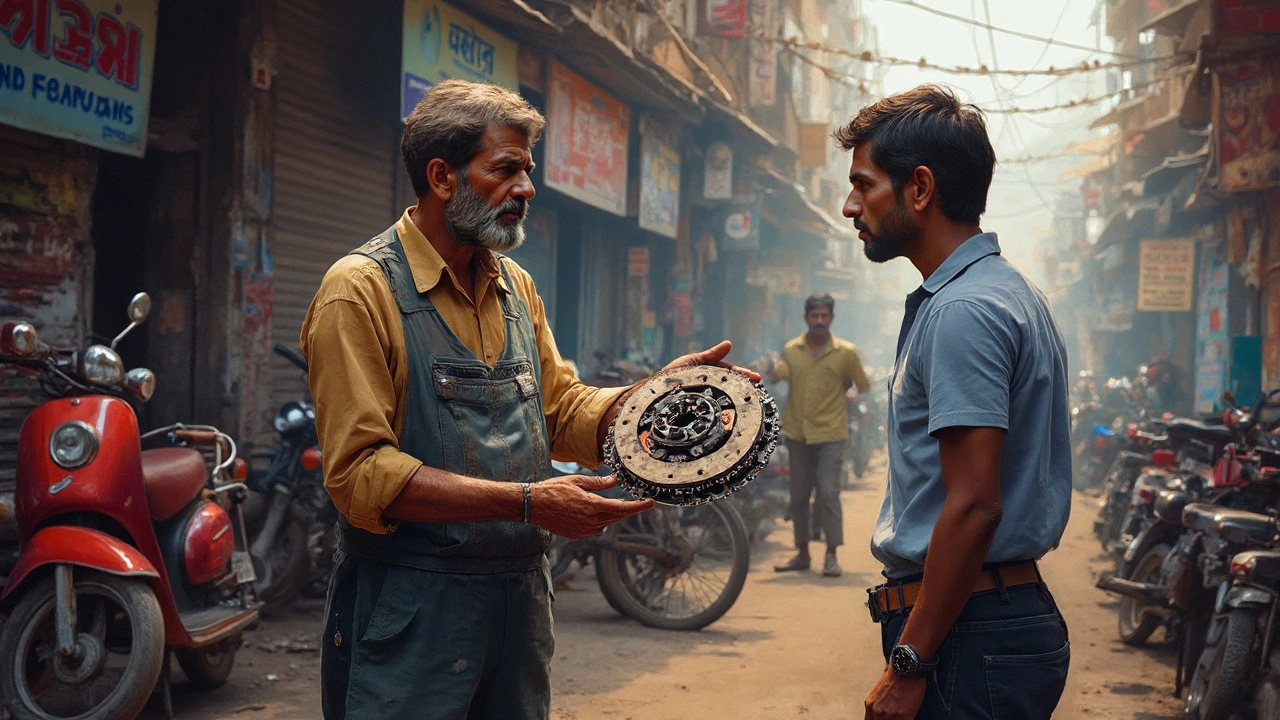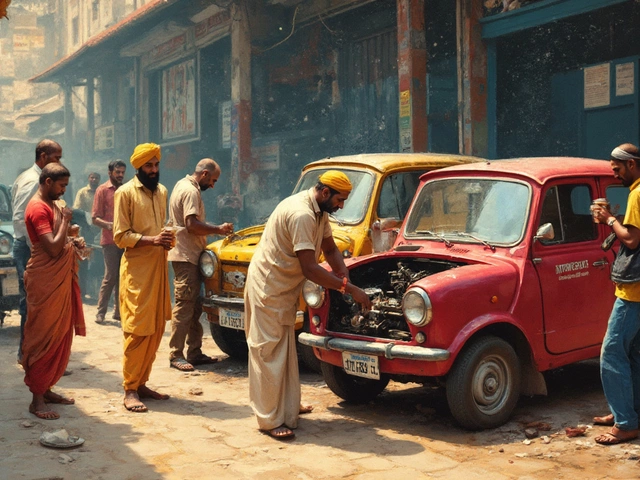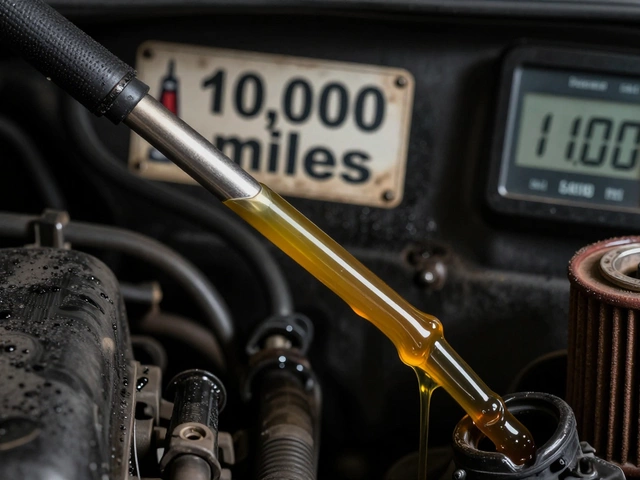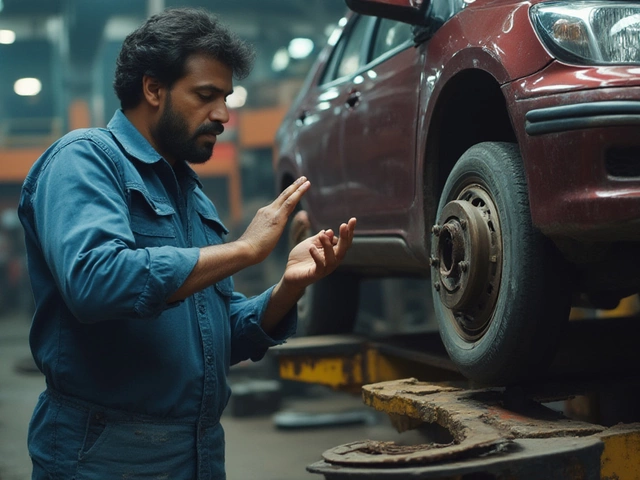Ever wondered how often you should be replacing your car's clutch? It's one of those components that doesn't get much attention until it starts causing trouble. Generally speaking, a clutch can last anywhere from 30,000 to 100,000 miles. But that's a big range, right? So, what's the actual deal?
Let's break it down a bit. If you're someone who does a lot of stop-and-go driving in the city or tends to ride the clutch, you might find yourself replacing it more often. Meanwhile, cruising on the highway is a bit kinder to your clutch, and it might last longer. The make and model of your car also play a role. Some vehicles are just built tougher than others.
What are the telltale signs that your clutch is on its way out? If you notice the clutch pedal feeling spongy, slipping more often, or a burning smell when changing gears, it’s probably time for a check-up. Paying attention to these small changes can save you from bigger headaches down the road.
- Understanding Clutch Lifespan
- Signs Your Clutch Needs Replacement
- Impact of Driving Style
- Types of Clutch Kits
- Tips for Extending Clutch Life
- When to Consult a Professional
Understanding Clutch Lifespan
When it comes to figuring out the lifespan of a clutch, there's no one-size-fits-all answer. You're looking at a range because factors like car type, driving habits, and where you mostly drive all come into play.
The Basics
Usually, a clutch is expected to last between 30,000 to 100,000 miles. Yep, that's a pretty big range! If you’re an aggressive driver or spend a lot of time in traffic, closer to that 30,000-mile mark might be more realistic for you. But if you treat your clutch with a bit more respect, it can last much longer.
Average Life Expectancy
A more specific figure? Many find that around 60,000 to 80,000 miles is pretty average. Of course, 'average' doesn’t mean everyone. That’s where knowing your driving style and maintenance habits come in handy.
Vehicle Specifics
Another big factor is your car itself. A sedan might be tougher on its clutch than a lightweight sports car. Clutch kits in heavier vehicles generally have more wear and tear because they do more work. That being said, check your vehicle's manual for manufacturer recommendations—they know their stuff!
Surprising Influence of Road Conditions
Don't underestimate the impact of the roads you travel. The smoother the road, the kinder it is to your clutch. Driving in hilly areas means your clutch is working harder, particularly during those uphill battles. Also, regular city driving can wear it out quicker than open road driving, thanks to all that stop-and-go traffic.
Here's a fun comparison:
| Condition | Impact on Clutch |
|---|---|
| City Driving | Higher Wear |
| Highway Driving | Lower Wear |
| Hilly Terrain | Higher Wear |
So, how do you get the best out of your clutch replacement? Keep an eye on those driving habits and pay attention to signs of wear. That’s your key to stretching out its life, not just in miles but also in peace of mind.
Signs Your Clutch Needs Replacement
Alright, let's talk about the warning signs that might suggest it's time to think about clutch replacement. Ignoring these can mean living dangerously close to a breakdown.
Slipping Clutch
If you've ever felt your car's engine rev but the speed doesn't increase accordingly, you might be dealing with a slipping clutch. It's like spinning your wheels but getting nowhere. This happens when the clutch's friction material wears out, and it can't grip the flywheel properly. You’ll usually notice this more in higher gears.
Strange Noises
Loud and unusual noises when pressing the clutch can be another sign. A high-pitched squeal or loud grinding sounds? Never a good sign. It might mean the bearings or pressure plate are wearing out!
Sticky or Spongy Pedal
A sticky or spongy feeling when pressing the clutch pedal can indicate hydraulic problems or worn-out components. If you find it hard to press the pedal or if it doesn't come back up smoothly, don't ignore it!
Clutch Pedal Vibrations
Feel some vibrations or juddering in the pedal? This could mean the clutch is not engaging properly, possibly due to damage or wear. It's like trying to walk on a trampoline – there's no solid footing.
Burning Smell
A smell like burning rubber when you change gears is a dead giveaway that the clutch is overheating or slipping. When the clutch overheats, it loses the ability to transfer power effectively.
Difficulty Shifting Gears
Struggling to shift gears? This might be due to the clutch not disengaging completely. A clutch that doesn’t release fully will make smooth gear changes harder, particularly when shifting into reverse.
Your driving habits play a big role here. If you're noticing any of these signs, it's best to consult a professional. Keeping an eye out for these red flags will help you avoid sudden failure and ensure your car stays in good shape.
Impact of Driving Style
Believe it or not, how you drive can seriously affect how often you need a clutch replacement. It’s not just about the miles; it’s about how those miles are driven. Let's dive into some common driving habits and see how they play a role.
City Driving vs. Highway Cruising
City driving involves a lot of stopping and starting, which is notorious for wearing out clutches faster. Constantly shifting gears in traffic equals more wear and tear. Meanwhile, highway cruising is generally smoother with less gear shifting, giving your clutch a break.
Riding the Clutch
If you tend to rest your foot on the clutch pedal, even slightly, you're putting unnecessary pressure on it. This is often called 'riding the clutch,' and while it might seem harmless, over time it leads to faster wear and tear.
Aggressive Driving
Revving the engine hard, quick shifts, and generally aggressive driving can fry your clutch. The extra force and heat generated by aggressive driving can take years off its life. A clutch is designed for smooth transitions, not drag racing starts.
Choosing the Right Gear
Repeatedly shifting to the wrong gear, like starting from 2nd instead of 1st or revving too high in lower gears, also takes a toll. It’s not just bad for your car maintenance; it’s unnecessary stress on the clutch.
Family Van vs. Sports Car
Your vehicle type can also be a big factor. Sports cars often have clutches designed for performance, which can mean they either wear out quicker due to the demands or last longer due to superior material. Vans and trucks usually have beefier clutches made for more arduous tasks, like hauling.
Getting familiar with the way you drive can give you better insight into how often you might need that next clutch replacement. Making small adjustments can significantly extend the lifespan of your clutch kit, saving you money and hassle down the road.

Types of Clutch Kits
When it comes to choosing the right clutch kit for your car, it turns out there's more to consider than you might think. Not all clutches are created equal, and picking the right one depends on your vehicle type and how you drive it. So, let's look at what you've got to choose from.
1. OEM Clutch Kits
The first type is the good old OEM, which stands for Original Equipment Manufacturer. These are essentially the same as the clutch your vehicle was born with. They're reliable and often the best bet if you're looking to keep things as factory-standard as possible.
2. Performance Clutch Kits
If you're more of a speed demon, a performance clutch might be your style. Designed to handle higher horsepower and torque, these kits are perfect for modified vehicles. They can take more heat and last longer, though you might find them stiffer than your regular clutch.
3. Heavy-Duty Clutch Kits
For those lugging around heavy loads or doing a lot of towing, a heavy-duty clutch kit is a lifesaver. Built to withstand more stress, they're favored by truck owners or those who do lots of off-roading.
4. Conversion Clutch Kits
Sometimes folks want to switch from an automatic to a manual setup, and that's where conversion kits come in. They include everything you need for the switch, though it’s a pretty involved process.
Choosing the right clutch replacement involves understanding your driving habits and vehicle use. A chat with your mechanic can help, especially if you're not sure what fits your car best. It's not just about replacing parts; it's about enhancing your ride with the right clutch kits for your needs.
Tips for Extending Clutch Life
Want to stretch the lifespan of your clutch as far as possible? It's not as mysterious as it might seem. Taking care of your clutch involves a few straightforward habits that anyone can pick up.
1. Avoid Riding the Clutch
Sure, it might be tempting to rest your foot on the clutch pedal while driving, especially in traffic. But this habit has the potential to wear it down prematurely. Try using the dead pedal or keep your foot flat on the floor until you really need to engage the clutch.
2. Use Neutral Wisely
When stopped for more than a few seconds, like at traffic lights, shift into neutral rather than keeping the clutch engaged. Keeping the vehicle in gear while stationary can add unnecessary wear on your clutch system.
3. Smooth Gear Changes
Quick, jerky gear changes can accelerate the wear on your clutch plates. Instead, develop smoother gear-shifting techniques. Press the clutch pedal all the way and shift promptly but gently.
4. Regular Maintenance Checks
Stay on top of your regular car maintenance schedule. By keeping your engine and transmission systems in top shape, you'll naturally help your clutch kits last longer. Don't wait until a minor issue becomes a major problem.
5. Load Considerations
Be mindful of how much load you put on your vehicle. A heavier load forces the clutch to work harder, potentially leading to faster wear and tear. Distribute the weight evenly and avoid overloading your car.
Understanding the Stats
| Factor | Impact on Clutch Life |
|---|---|
| City Driving | -30% |
| Highway Driving | +20% |
| Regular Maintenance | +15% |
Keep these tips in mind and you might save yourself a trip to the mechanic sooner than expected. Taking care of your clutch isn't just about money—it's about getting the most out of your driving experience.
When to Consult a Professional
Thinking your clutch might be on its last legs? Knowing when to call in the pros can save you not just money, but a whole lot of stress. Here’s when you shouldn't wait and just head straight to the shop.
Strange Noises
If you hear grinding or unusual sounds every time you press the clutch pedal, that’s your cue to ask an expert. These noises often point to deeper issues that only a professional can diagnose and fix.
Difficulty Shifting Gears
Struggling to change gears smoothly? That’s not something to ignore. Hard shifting could mean your clutch isn’t fully disengaging, which might point to a hydraulic issue or a worn-out clutch kit.
Spongy or Loose Clutch Pedal
If the clutch pedal feels spongy or doesn't bounce back as it should, this can be due to air in the hydraulics or deteriorated components. Either way, a professional needs to assess it.
Visible Signs of Wear
Clutch slipping too often? You might notice it in the form of a burning smell or a decrease in fuel efficiency. If left unchecked, this can lead to bigger, more expensive issues.
| Problem | Possible Impact |
|---|---|
| Grinding Noise | Potential transmission damage |
| Difficulty Shifting | Dangerous driving conditions |
| Burning Smell | Potential clutch failure |
Don’t wait for the final screech of a totally worn-out clutch. Consulting a professional at the right time can save you from an unexpected breakdown.




